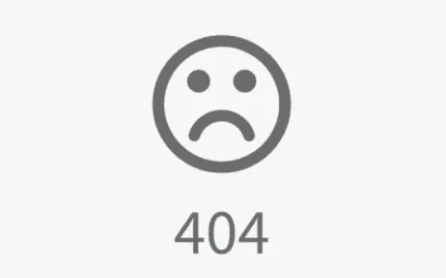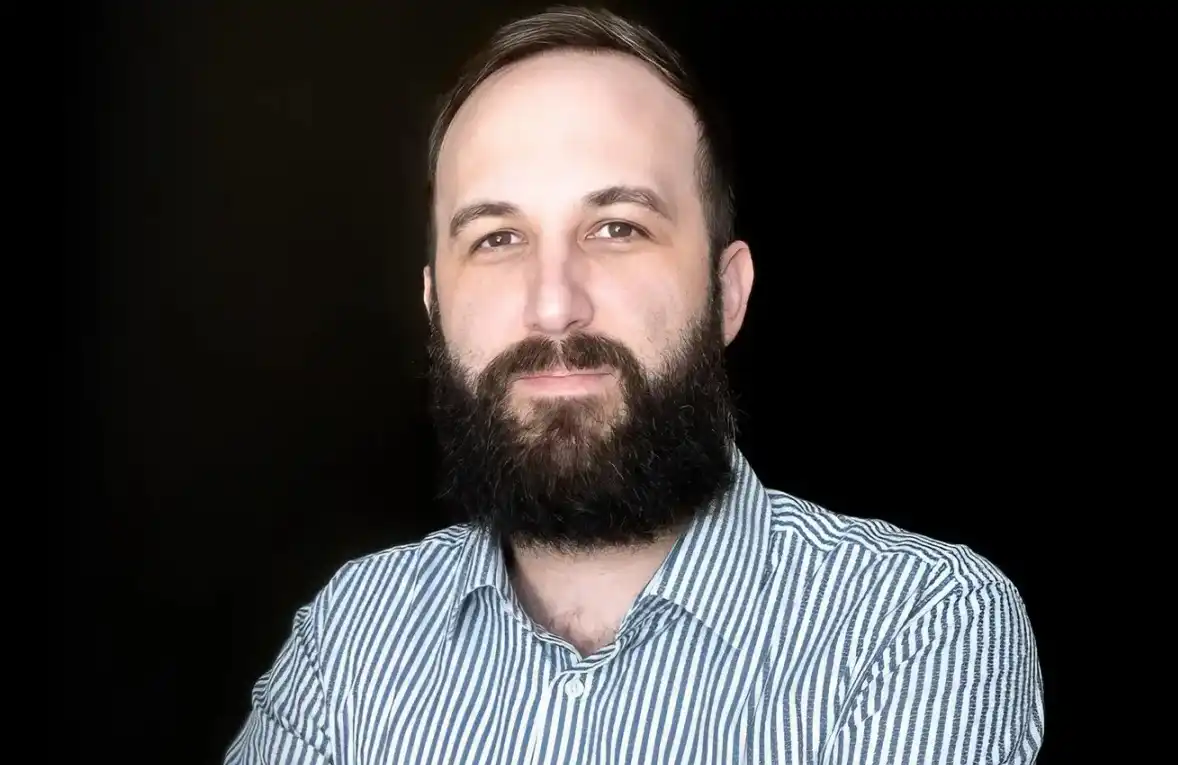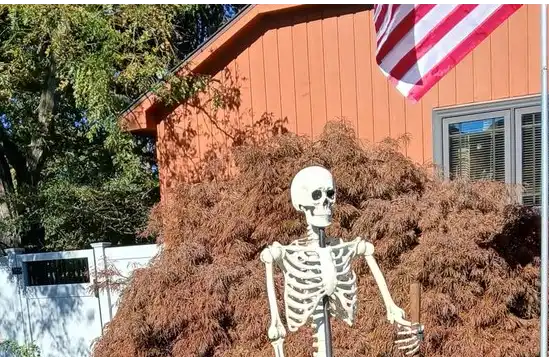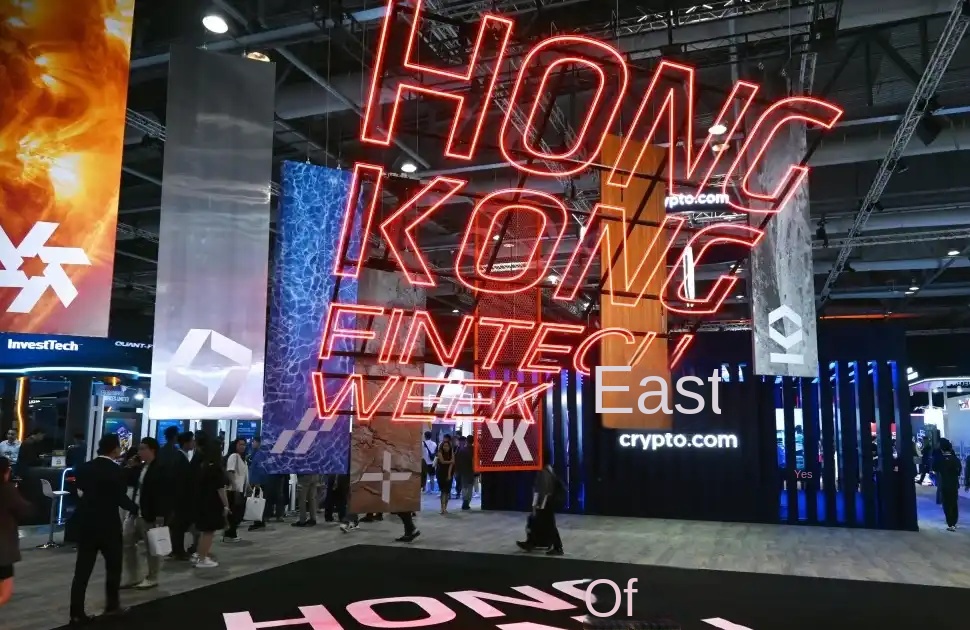Decentralized Narratives Aside, 4 Reasons We Need DAOs
Original title: "Wiki 001: Nothing to do with decentralization, 4 reasons why we need DAO"
Original author: @Maynor, Buidler DAO
If you don’t pay attention to the identity of the decentralized practice carrier, DAO Why is it needed?
We have analyzed dozens of in-depth articles in the industry, put forward the following four points of view, and combined with existing practices to give cases:
1. A fair starting point for anonymity
2. Automated governance creates barriers of trust
3. Breaking the boundaries of regions and supervision
4. Redefining work
p>
When a question is called "Do we really need decentralization?", maybe 80% of people will choose the affirmative answer.
When an organizer says we are going to build a DAO (Decentralized Autonomous Organization), few people reject such an attempt to "decentralize ” form to complete the governance proposal of power checks and balances. But, even among DAO members, few have ever thought about, do we really need a DAO?
Why am I obsessed with DAO?
Because this is an alternative form of human organization that blockchain governance may enable, it is an extremely sexy narrative. The imaginative space for governance using blockchain technology is huge, for example, it can avoid the cumbersome process of establishing a business and create fluid, temporary, and global economic cooperation. It is in line with the spirit advocated by the ancient topic of "democracy": a high degree of openness and transparency, and anyone can verify whether the rules are followed. This is an attempt to subvert human judgment and trust logic with technological means. At the same time, DAO represents a trend of putting power in the hands of individuals more fairly—individuals can seek the development of greater choice and autonomy in DAO, and broaden their horizons.
Put simply, DAOs are a new way of funding projects, governing communities, and sharing value. It answers the question of how we will work, invest, create and play together in an increasingly digital and global world. If blockchains, NFTs, smart contracts, DeFi protocols, and DApps are tools, then DAOs are the groups that use them to create new things. If they are "what", DAO is "how".
Based on the research enthusiasm for DAO, we analyzed dozens of in-depth articles in the industry, trying to answer a question first: To break through the gimmick of decentralization, we need DAO What are the other reasons for ? At the same time, we have made a set of DAO knowledge maps, you can visit the Notion page to read (Click to read the original text ).
A quick overview of the article:
1 .An anonymous and fair starting point
2. Automated governance creates barriers of trust
3. Breaking the boundaries of regions and supervision
4. Redefining work
p>
5. Conclusion: An excellent carrier of value proposition in the technological revolution
An anonymous and fair starting point
Anyone can join an interested DAO regardless of age, gender, skin color, or any other characterization. This means that members can build a reputation within the DAO without having to reveal their true identity, thus being able to work on a more level playing field. Especially in the early stage of contribution, members get the same starting point through "de-identification", and managers can motivate various contributors based on PoW, instead of catering to members of organizations with a large number of fans and higher reputation. At the same time, anonymity is freedom A hotbed of ideas, you don’t have to worry about putting your professional reputation at risk because you publish some unconventional ideas. Free thinking is just a hotbed of innovation. People can put forward bold and avant-garde proposals in DAO and accept community votes. And create value for the organization as a whole - this is what the Incubator DAO is built on.
Anonymous permission is a double-edged sword, and it does Bring constraints to the governance of DAO. For example, in the market-making agreement DAO, there is no identity guarantee, which makes it easier for anonymous contributors to do evil: build a backdoor in a specific code fragment. Although the attacker’s Ethereum address can be blacklisted, but This does not prevent similar attacks using different addresses in the future.
Paradoxically, there is a need for organizations to identify highly skilled contributors to help them quickly establish Reputation and credibility to motivate long-term contributions. This means that organizations need to give members an option: contribute anonymously or prove themselves quickly. There have been high-quality solutions based on SBT (soul-bound NFT) in the market, which can be simply explained as, A specific "ID NFT" is stored in the address, which can indicate the identity of its holder under the chain and be accurately identified. However, there are still some problems that are difficult to solve, such as: avoiding the behavior of collection in the issuance, how to ensure Holders will not transfer, how to identify asset transfers for security reasons, etc.
These are existing solutions.
Kleros has developed an ERC-20 registration system called "PoH (Proof of Humanity)". This requires me to submit a video, a deposit, and a guarantee from someone already registered, to ensure that the applicant is indeed a real person and has never registered before. After this, the real identity with specific skills and experience of the off-chain identity will be linked to the exclusive address.
Governor DAO proposes a method based on biometric authentication technology, which generates a unique hash value representing an individual by collecting sensory data from users, and issues unique and non-transferable ERC20 personal tokens, which are permanently associated with their wallets However, there may be privacy concerns in collecting data.
Automated governance forms create barriers of trust
As Vitalik (the founder of Ethereum) said, the blockchain is a powerful underlying layer that can be used to carry the governance logic of other applications, but it itself requires a new and different form of governance. When a company internal When there is a difference of opinion, splitting into two companies may not be the first choice - the procedures are cumbersome, the division of interests is difficult, and the restructuring is not a one-day effort. But in DAO, the fork based on blockchain consensus may become a new governance option.
Both bitcoin and ethereum have seen various forms of "constitutional crisis", most notably with regard to the ethereum DAO fork and bitcoin block The scaling debate. The two sides of the debate have different strong beliefs about the value of the project. When they cannot convince each other, they are finally resolved in a chain fork. No one dictates what is "official, formal governance" - there is no specific person or council or voting mechanism - and for things that are really controversial, the core developers often choose to take a step back and listen to the community.
At this point, DAO, which claims to use code to ban part of the rule of man, seems to be more inclined to "rule of man" than most organizations, and pays more attention to the opinions of the community. This may be an improvement: when DAO uses code to solve some trust problems that require a lot of costly repeated confirmation, more energy may turn to the voice of people themselves.
The DAO Governance Map runs on top of the blockchain protocol, and most of its operations are automated. Voting, treasury distribution, token deployment, and unlocking content based on membership are "trustless." The organizational form of DAO is more flexible, and the governance structure can be innovated through various tokens and voting protocols. In addition to the basic one-person-one-vote, there are token voting, representative voting, streaming democracy, quadratic voting, etc. With the issuance of multiple tokens and combinations, the DAO voting method is easier to deploy. And possible path dependencies, such as the persistence of legacy systems that prevent necessary changes from being implemented, can also be solved at low cost in DAOs. A brief introduction to several voting mechanisms in DAO:
Representative voting means that voters entrust their power to a representative and let the representative exercise voting rights on their behalf . Every decision needs to occupy the thinking bandwidth of the voters. This is one of the reasons for the "rational indifference" of choosing public issues in reality, and it can also explain why the number of votes in DAO is very different from the number of members it has. A more A good choice is to entrust decision-making to experts, which is lower than bearing these costs yourself. In the blockchain, the DPoS consensus algorithm is a typical representative voting.
Quadratic voting is proposed by Vitalik between 1T1V (one token one vote) and 1P1V The key to the voting mechanism between (one person, one vote) is to allow a single voting subject to vote repeatedly for the same option to express the intensity of their will. In order to avoid the giant whale monopolizing the right to speak, the marginal cost of repeated voting for the same option is decreasing trend, which means that vote n+1 costs more than vote n. Gitcoin currently uses this mechanism as a donation DAO to determine which projects the Ethereum provides funding for many Ethereum projects and creates an open culture of community participation.
Breaking geographic and regulatory boundaries
< /p>
The Internet has no borders. It is because of the existence of the Internet that the world is being smoothed out. The borderless nature of DAO provides opportunities for people all over the world. People in developing countries can contribute to the world by Organizations everywhere (not just DAOs) earn a currency with greater purchasing power, which will improve their personal and family lives.
On further reflection, this will Will it also lead to a weakening of the effectiveness of economic sanctions policies among countries? The importance of the concept of geography in the real world is gradually decreasing. And this is the trend that the world has been changing for decades, from closed to open, from estrangement to communism
The global economic slowdown and even the downward trend are calling for the emergence of a new economic growth model. If it is not the technological explosion, another way may be It is the expansion of the market scale - allowing many (due to geographical) subdivisions of the market to merge, and those who can win in the fierce competition will reduce cost waste and resource misallocation. The emergence of DAO is a mutual market in a sense. Communication.
On the other hand, the openness and transparency of blockchain data is reducing the cost of supervision and is also replacing supervision duties based on national sovereignty.
Anyone can see the sending and receiving addresses of all transfers in a blockchain browser (such as Etherscan). In addition to the encryption of the private information of the parties involved in the transaction, the data of the blockchain is open to everyone, and anyone can query the blockchain data and develop related applications through the open interface, so the information of the entire system is highly transparent. The operation of the organization does not need to be supervised closely, and countless pairs of eyes from investors are monitoring every move. This kind of decentralized "supervisory endorsement" adds attractiveness to the operation of DAO. Any abnormal behavior has traces to follow, and the information is no longer hidden, but becomes a state to be discovered.
Redefining work
“With the development of society, the definition of job security will have different," said FWB's Hauseman. She points out that decades ago, our parents and grandparents worked for the same company for 20 to 30 years. A generation later, "5 to 8 years" is considered a long time to be with a company. In domestic Internet companies, working in the same company for more than two years is already considered stable. In the commercial society, the concept of separating work from one's own career and treating it as an employment relationship with modern companies is gradually being accepted. And DAOs are just a continuation of this broader trend.
In an era of increasing uncertainty, DAO seems to be the "evidence" or "result" of uncertainty. DAOs offer job security unlike traditional jobs. Usually being paid per project means not being entirely sure how much money you will make. But it's hard to be comfortable in a DAO if you can't handle uncertainty. But the question is, is this getting worse? Web2 companies haven't done much better with job security, either.
On the one hand, the high transparency of information helps new entrants to quickly understand and new developers to quickly access, on the other hand, it means that the information itself is no longer a barrier. The existence of the company itself is a kind of information moat, and DAO breaks this moat, which will bring smoother talent flow and more intense talent competition.
Consider the scope and scale of the “gig economy.” In the U.S., an estimated 55 million people are classified as gig workers, scattered people who lack organization, collaboration, and leverage. In China, there are 200 million people in flexible employment. The birth of multilateral work comes from the increasingly fierce competition in the global talent market. Employees begin to have the right to choose an employer, focus on the main business, and explore with side jobs. We can freely move and define our own identity, and choose the right identity to connect with corresponding resources and contacts.
Contributing to multiple communities at the same time is the norm for people making a living in Web3. Some DAO contributors often list 3-5 communities in their tweets. According to the "optimal difference" theory, the multilateral work created by Web3 is not a casual betrayal of the "9-to-5 job" of Web2-it is a logical step for mental workers in an increasingly competitive labor market. step. An employer may expect an employee to work for him full-time, whereas in a more competitive market, a self-reliant employee would prefer to work for multiple communities.
PS: Best Difference is a theory that studies the superimposition of multiple affiliations within a single identity. People are always looking for a balance between belonging and differentiation.

From "Communities Aren't Buckets –– They' re Clouds》
Rafa is the director of Mirror DAO, a Web3 content distribution platform. Rafa studied organizational behavior for several years before helping start Mirror DAO. He concluded that most bureaucracy, waste, and bloated management in companies exist for a simple reason: companies get stuck trying to get people to do jobs they don't really want to do (which is why we have bosses and ultimately the term).
David Graeber, author of "Bullshit Job", asks: Why is productivity progress accompanied by increased labor (meaningless labor) and a lack of sense of meaning? DAO provides an opportunity to "do favorite or cool work", thus creating value, and people will pay for it in order to recognize the quality. Here, the necessity of DAO is to provide different options. You can choose to stay and accept the trap, or you can step out and embrace the uncertainty.
In fact, the choice is not two poles, but there are different degrees and magnitudes. This is one of the main advantages of DAOs: different levels of contribution can be allowed. You can be a full-time contributor, a part-time contributor, or just complete some one-time tasks (bounty tasks), it all depends on your personal time and bandwidth. This returns the right to choose a job to the individual - if you can't take too much risk, doing part-time work that interests you is also one of the options.
Conclusion: An excellent carrier of value proposition in the technological revolution
The future belongs to decentralization Whether it is centralized or not depends on whether it can attract enough outstanding entrepreneurs and developers, and DAO may play an important role in it.

Source: google ngrams
The term "autonomy" was used decades before the term "automated/automation" was used. When Web3 uses the term autonomy, it often blends the concepts of autonomy and automation. From a technical point of view, DAOs contain automation components, or bots. But from a political-philosophical perspective, DAOs are characterized by autonomy, that is, self-realization at the organizational level.
Sun co-founder Bill Joy pointed out, "A better strategy is to create an ecosystem where all the smart people in your garden serve your goals Work. If you only rely on your own employees, you can’t solve all the needs of your users.” Compare the spam problem of Twitter and email systems. Since Twitter shuts out third-party developers, the only people who can solve the spam problem are Twitter employees. In contrast, hundreds of companies are trying to solve the problem of spam, not completely, but better than before, given that the protocols that power email are decentralized.
The right environment is more likely to attract new contributors than high salaries at venture-backed startups. Giants have resources and users, as well as a relatively complete infrastructure, while the encrypted world provides developers and entrepreneurs with a more attractive value proposition, and DAO is an excellent carrier for this value proposition .
The industrial revolution and the emergence of the corporate system drive the subversive development of human productivity, and now we are standing at a new point: the technological revolution and the new form of production organization , and this organizational form will carry the value proposition and management method of the technological revolution, and organize people together in a more fair, efficient, and democratic way. This may be the end of DAO.
Reference article:
[1] "The Way of DAO" https://medium.com/primedao/conceptual-models-for-dao2dao-relations-ac2b2d3cc84d[2] "Nine Questions Thinker V God" https:/ /mp.weixin.qq.com/s/h1lcybvu4TLygPaZgoCkJg[3] "DAO Beginner's Guide" https://mp.weixin.qq.com/s/tbKt0VA7DnKfdtBe874K-A[4] "Definition DAO, the Big Picture"https://mp.weixin.qq.com/s /5vCrg92G6m8vtUAHOzvISg[5] "Why does DAO need better decentralized identity tools?" "https://mp.weixin.qq.com/s/jQd01M -F0RMomSq5ELasvg[6] "DAOrayaki|DAO Democratic Voting Series: Overview of Democratic Voting Mechanism" https://mp.weixin.qq.com/s/5zkbM_99bnhOhbU-tKXB7g[7] "PAKA Labs | Deep Analysis : 7 Common Voting Mechanisms of DAO"https://mp.weixin .qq.com/s/5zkbM_99bnhOhbU-tKXB7g[8]《 DAO.edu: The Future of Decentralized Learning" https://mp.weixin.qq.com/s/iQ7CIL-NdwqOOjuCdPwHJA[9] "Dedicate your liver to DAO": Those who think DAO is the future of work " https://mp.weixin.qq.com/s/fT9stp8bL2QWEkxXZ1hXbA[10]《DAO : Fuck Bullshit Job!》 https://mp.weixin.qq.com/s/ZvjxgBI-ZNLk-PdJRymfxA[11] "Clouds and Stuffy Tanks: Contributions The best difference in identity of the author" https://mp.weixin.qq .com/s/q1MDrX1eHWOPBtrn8AIzBw[12] "Why is decentralization important?" (Especially in the centralized present)》https://mp.weixin.qq .com/s/l5tlo1kV5dHkio1XNfyEdw
Welcome to join the official BlockBeats community:
Telegram Subscription Group: https://t.me/theblockbeats
Telegram Discussion Group: https://t.me/BlockBeats_App
Official Twitter Account: https://twitter.com/BlockBeatsAsia


 Forum
Forum Finance
Finance
 Specials
Specials
 On-chain Eco
On-chain Eco
 Entry
Entry
 Podcasts
Podcasts
 Activities
Activities
 OPRR
OPRR









